Imagine biting into a crisp, juicy apple. Now picture the journey that the apple took to reach your hand—the soil it grew in, the water that nourished it, and the hands that tended it. What if that apple wasn’t just delicious but also part of a larger solution to environmental crises, soil collapse, and global hunger? That’s the promise of organic farming. But is it really the hero we’ve been waiting for? Let’s dig in—pun intended.
Environmental Concerns: The Good, The Bad, and The Green
When we talk about organic farming, the first thing that comes to mind is its reputation as an eco-warrior. And for a good reason: Why Organic Farming Is Necessary
The Good
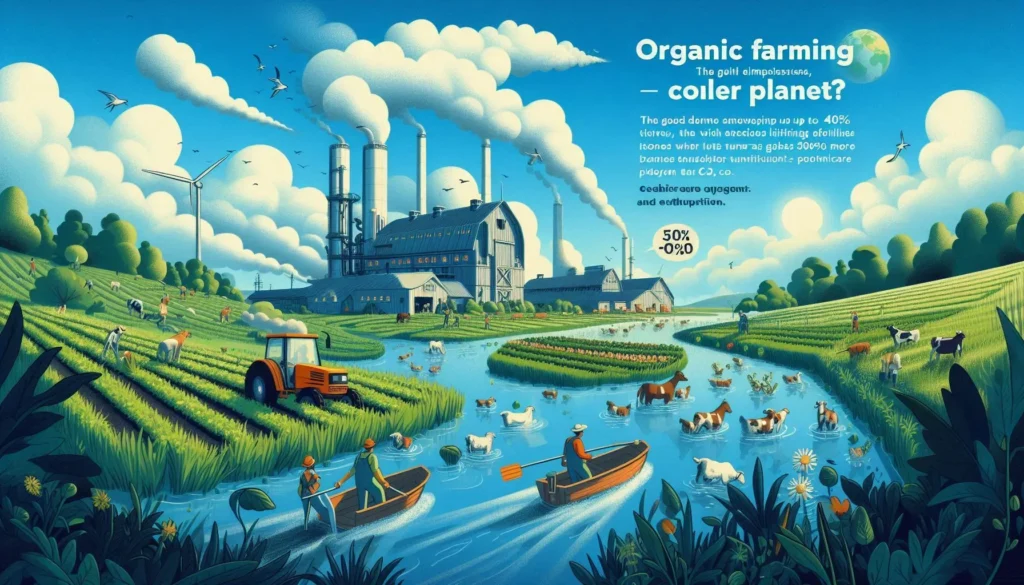
- Fewer Emissions, Cooler Planet: Organic farms emit up to 40% more than conventional ones. How? By ditching synthetic fertilizers, which are notorious for leaking nitrous oxide—a gas 300x more potent than CO₂.
- Cleaner Waterways: Ever heard of eutrophication? It’s when chemical runoff (like pesticides) turns lakes and rivers into algae-filled dead zones. Organic farming avoids this by using natural pest control, keeping aquatic ecosystems thriving.
- Biodiversity Boost: Organic farms are like nature’s Airbnb. Studies show they host from bees to birds, compared to conventional farms.
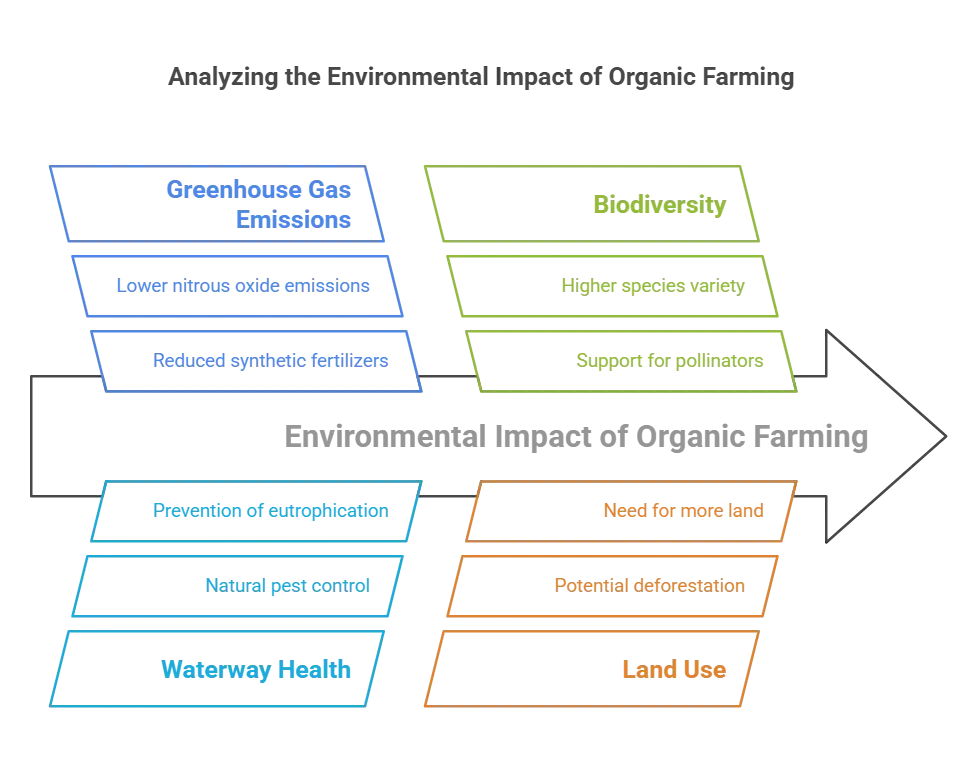
The Bad
But let’s not sugarcoat it. Organic farming isn’t perfect. Critics argue that because organic yields are often lower (more on that later), it could require more land to feed the same number of people. More land often means deforestation, which isn’t exactly a win for the environment.
Soil Degradation: How Organic Farming Digs Us Out
Soil isn’t just dirt—it’s a living, breathing ecosystem. Sadly, industrial farming has treated it like a disposable resource.
The Organic Fix
- Building Soil Health: Practices like composting and crop rotation turn soil into a nutrient-rich sponge. Research in found organic soils have up to 26% more carbon, making them fertile and drought-resistant.
- Stopping Erosion in Its Tracks: Synthetic fertilizers weaken soil structure, leaving it vulnerable to erosion. Organic methods, like cover cropping, act as a shield, keeping topsoil—and our food supply—intact.
The Catch
Organic soil-building takes time. Farmers transitioning from conventional methods might see lower yields initially, which can be a tough sell in a profit-driven industry.
Food Security: Can Organic Farming Feed the World?
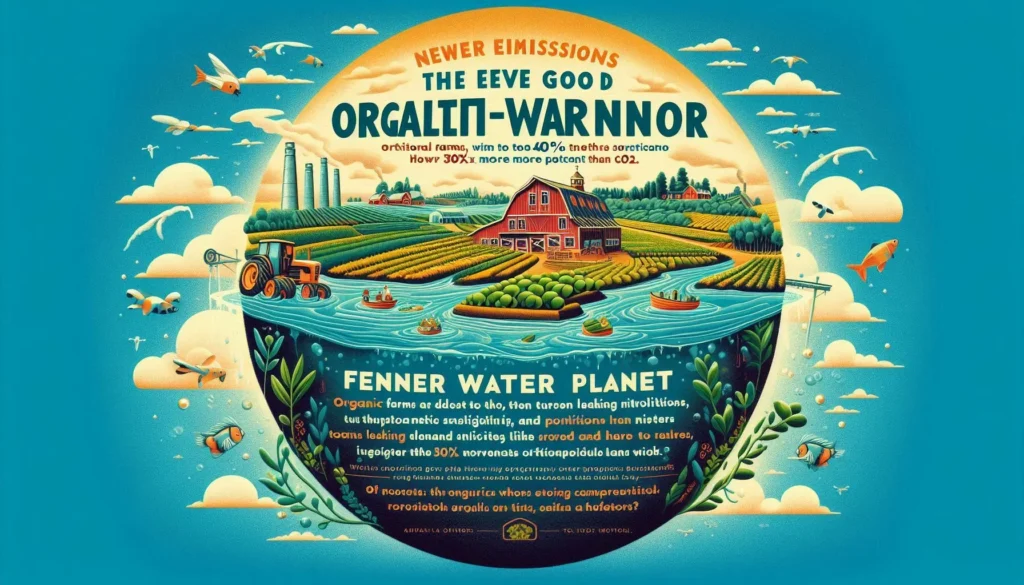
With nearly 10 billion mouths to feed by 2050, the stakes are high. Can organic farming rise to the challenge?
The Case For
- Resilient Crops: Diversity is organic farming’s secret weapon. By growing multiple crops (instead of monocultures), farms become less prone to pests and climate shocks. A study in Nature Sustainability found organic systems can match conventional yields in drought years.
- Nutrient-Dense Food: Organic produce often packs more vitamins and antioxidants. For communities relying on staple crops, this could be a game-changer for malnutrition.

The Reality Check
Organic yields are typically 10–25% lower than conventional ones. While this gap shrinks with innovation, scaling organic farming globally would require rethinking land use and food waste.
Organic vs. Conventional Farming: A Side-by-Side Showdown
Let’s break it down with a quick comparison:
| Factor | Organic Farming | Conventional Farming |
|---|---|---|
| Yield | Lower (varies by crop) | Higher (relies on synthetics) |
| Emissions | 40% fewer GHGs | High nitrous oxide from fertilizers |
| Soil Health | Improves organic matter & carbon | Degrades over time |
| Biodiversity | 34% more species | Less diverse ecosystems |
| Chemical Use | Natural pesticides only | Synthetic pesticides & herbicides |
This table isn’t about declaring a winner. It’s about trade-offs. Organic farming shines in sustainability, while conventional methods excel in short-term productivity.
The Road Ahead: Balancing Sustainability and Practicality
So, where do we go from here?
Hybrid Solutions
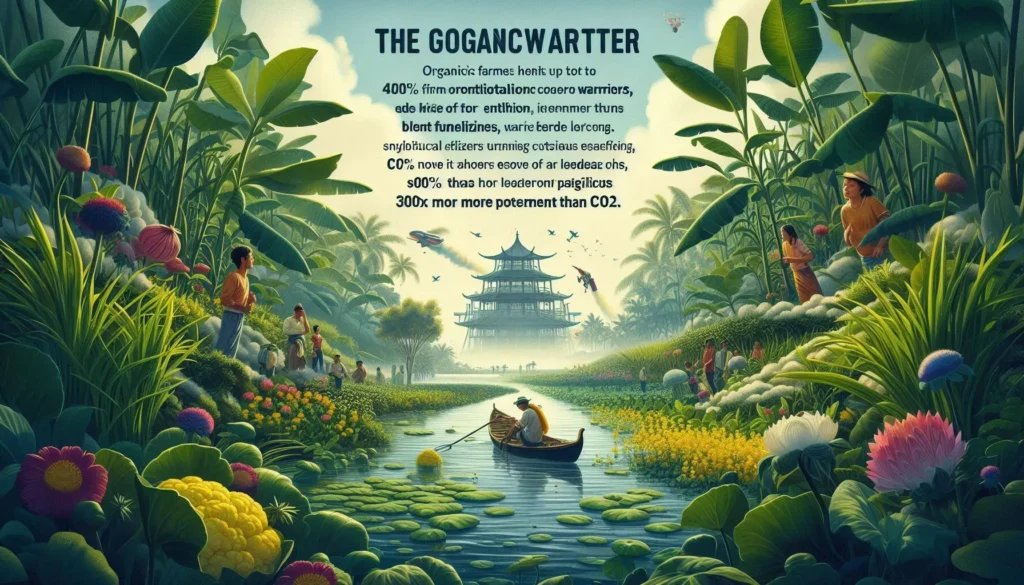
- Agroecology: Blending organic practices with cutting-edge tech, like precision irrigation, could boost yields without harming ecosystems.
- Policy Support: Governments could subsidize farmers during the tricky transition to organic, as seen in the EU’s Farm to Fork Strategy.
Consumer Power
Every dollar spent on organic food is a vote for cleaner farming. But let’s also support local farms—even if they’re not fully certified—that use eco-friendly methods.
Wrapping It Up: No Perfect Answer, But a Path Forward
Organic farming isn’t a magic bullet. It’s a toolkit—one that prioritizes long-term planetary health over short-term gains. Yes, it has flaws (lower yields, higher costs), but its benefits—healthier soil, cleaner water, and a stable climate—are too vital to ignore.
The future of farming isn’t organic vs. conventional. It’s about merging the best of both worlds to create systems that nourish people and the planet. So next time you bite into that apple, remember: the choices we make today will shape the farms of tomorrow.
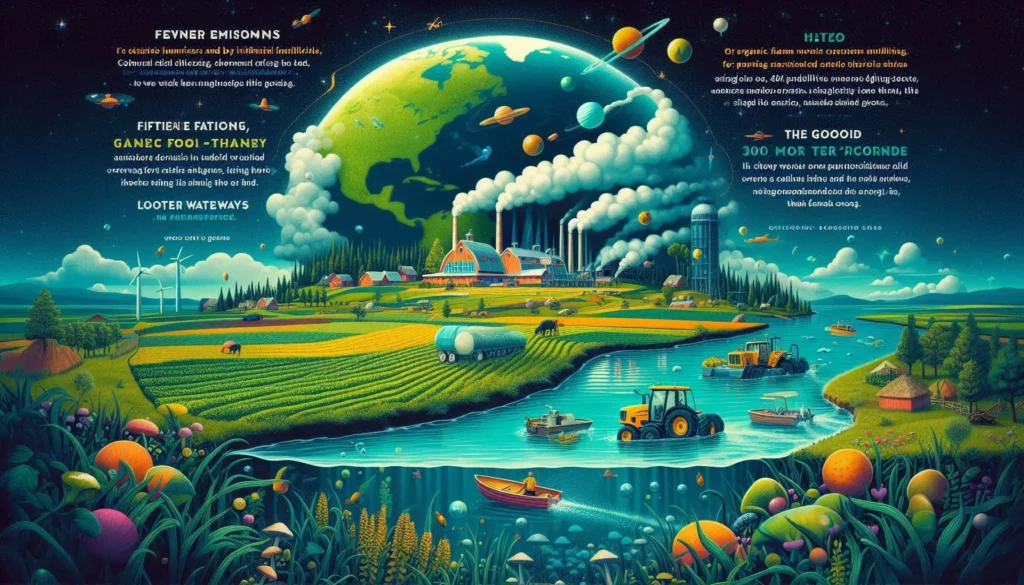
Got thoughts? Share your take on organic farming in the comments—is it essential, overhyped, or somewhere in between? Let’s chat! 🌱


